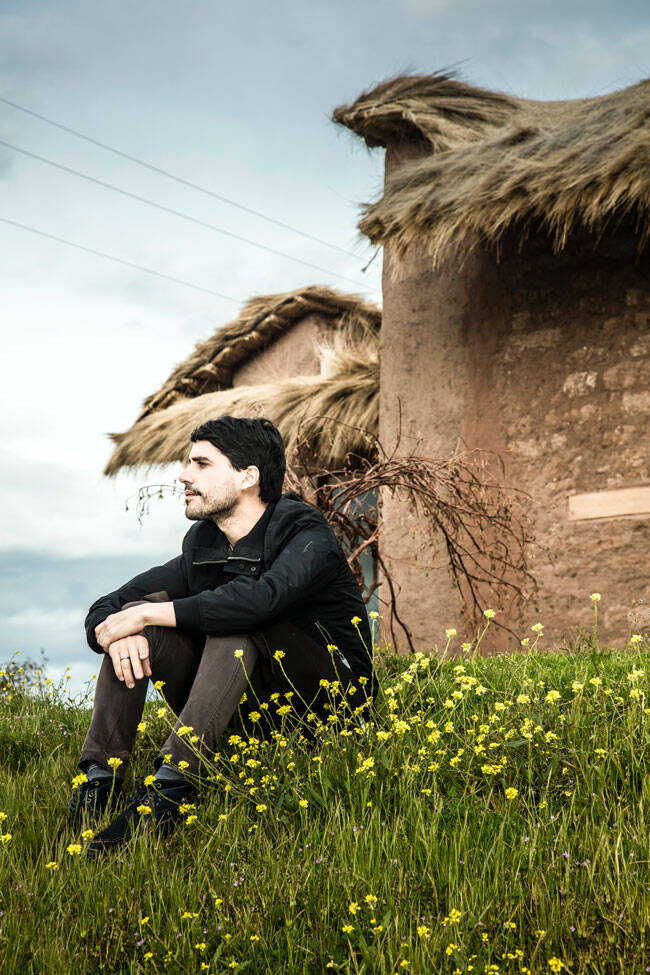What have been the most important changes you have seen during the Coronavirus crisis?
“The past couple of decades globalization has caused important local knowledge to fade away. I think we should all try to find a way back to our roots. I know this sounds like a catchy phrase but I feel people should start truly caring about nature by promoting hyperlocal producers, their knowledge and the way they work. I hope this pandemic has pushed people all over the world to be more aware of their own community and surroundings. A question we should always ask ourselves is: what can I do for others?”
“
We should all try to find a way back to our roots”
Change after the Coronavirus
“When we’re finally allowed to reopen Central, we’ll not change our concept. With the products we use in our dishes, we show people how to approach nature in a different way. We want to keep inspiring and keep celebrating the biodiversity and ancient food culture of Peru. Of course not all products we would like to work with will be available immediately. Our menu before the Coronavirus crisis consisted of sixteen courses that contained more than 300 different ingredients. Now, at first we’ll probably start with ten courses using the ingredients that are available to us. It will push us to explore and understand the possibilities of certain products, even more.”
“Another challenge that lies ahead of us is rebuilding our farm. Because of travel restrictions we weren’t able to harvest the produce we grew on our own farm outside of Lima. It has ruined a lot of our crops and the overall agricultural system. But I try to see positivity in this loss. It gives us a chance to be creative and redesign the place with local farmers.”
©Ken Motohasi

©Cesar del Rio
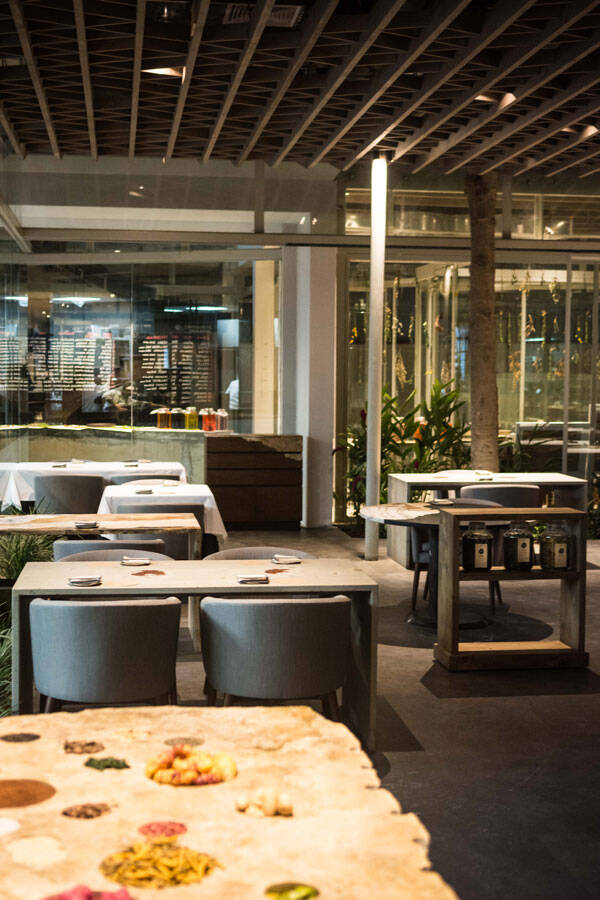
Self sufficiency
“I think it is interesting to see that the people who experience the least consequences from the lockdown, are the small producers that we normally work with in the Amazon. Most of them live and work in very remote places, so they’re already used to social distancing and living self sufficiently.”
“The people who are struggling the most are the producers from in and around Lima. I felt that we had to do something to give back to our community. We started to make take-away meals, and facilitate delivery. Because the products we normally use weren't available, I saw a chance to work with producers from Lima. Not only are we working with locals, but people from Lima are also eating our meals, which is really nice for a change. Usually our guests are people from outside of Peru.”
©Cesar del Rio
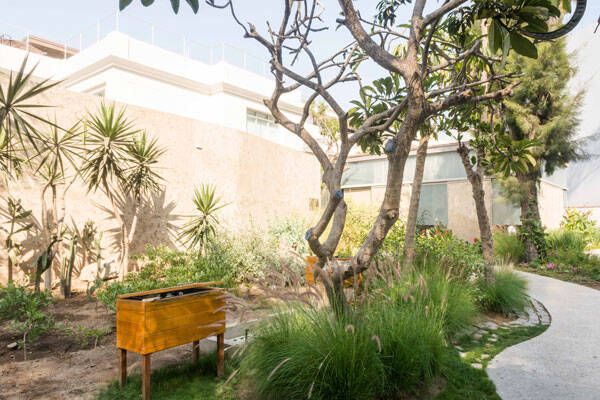
©Gustavo Vivanco
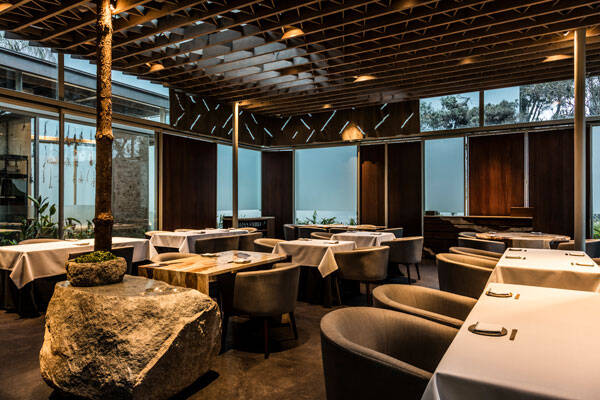
Lima in lockdown
“Since the Coronavirus hit Peru, the government has installed a hard mandatory lockdown. Until the end of June people were only allowed to leave their house on certain days. All travel between provinces is forbidden and restaurants remain closed. Hopefully we will be allowed to open with a restricted amount of guests in July.”
“I am lucky that I live in the same building as our restaurant. The four walls I have to stay within, are a lot bigger than those of others. You could say these past couple of months have been like a mandatory holiday for me. While we were closed I used the restaurant’s space to read, reflect, clear my mind and spend a lot of time connecting with my wife and son.”
“Nevertheless my business got badly affected by the consequences of this crisis. I lost almost half of my staff. A lot of them were not from Peru and had to move back to their home countries. Also Peru’s economy has been hit hard because of the far reaching consequences of the pandemic.”
“
I felt that we had to do something to give back to our community”
Lisa Appels Xiao Er Kong
Virgilio Martínez Véliz is considered a key figure in the new generation of Peruvian chefs. His kitchen is known for applying modern cooking techniques to indigenous Peruvian ingredients. “Central is a place where we celebrate Peru and we want to continue doing so in the future.”
©César del Rio
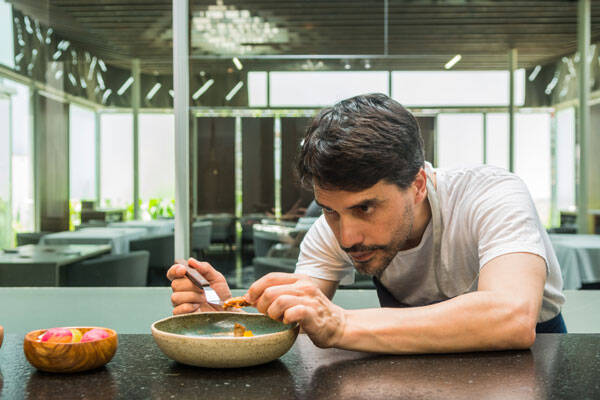
Chef and owner Virgilio Martínez Véliz of restaurant Central in Lima on the importance of taking care of your surroundings

INTERVIEW
3 min
FINDING A WAY BACK TO YOUR ROOTS
©Gustavo Vivanco
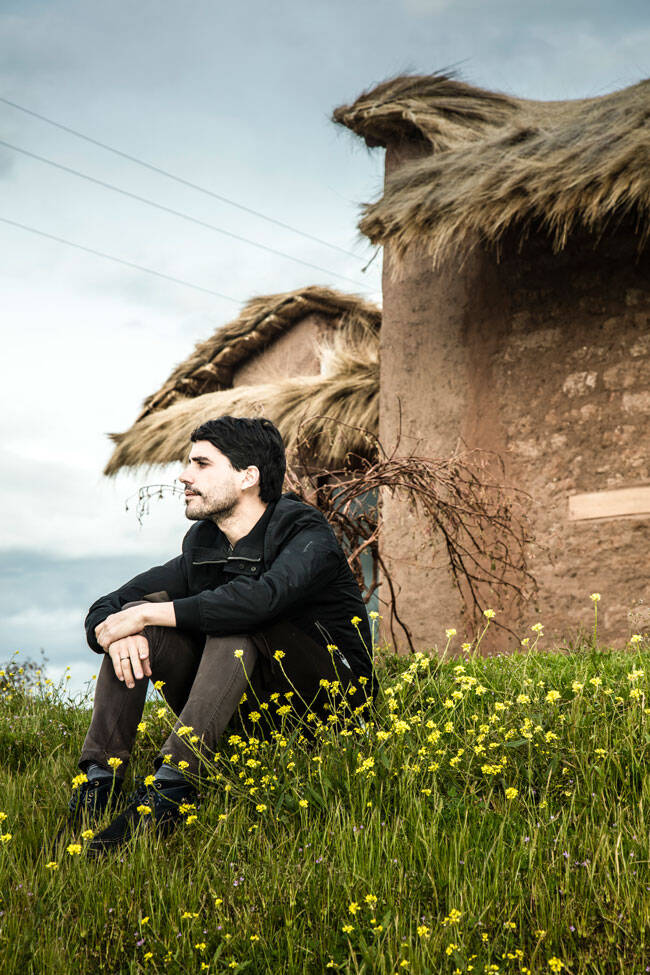
What have been the most important changes you have seen during the Coronavirus crisis?
“The past couple of decades globalization has caused important local knowledge to fade away. I think we should all try to find a way back to our roots. I know this sounds like a catchy phrase but I feel people should start truly caring about nature by promoting hyperlocal producers, their knowledge and the way they work. I hope this pandemic has pushed people all over the world to be more aware of their own community and surroundings. A question we should always ask ourselves is: what can I do for others?”
©Ken Motohasi
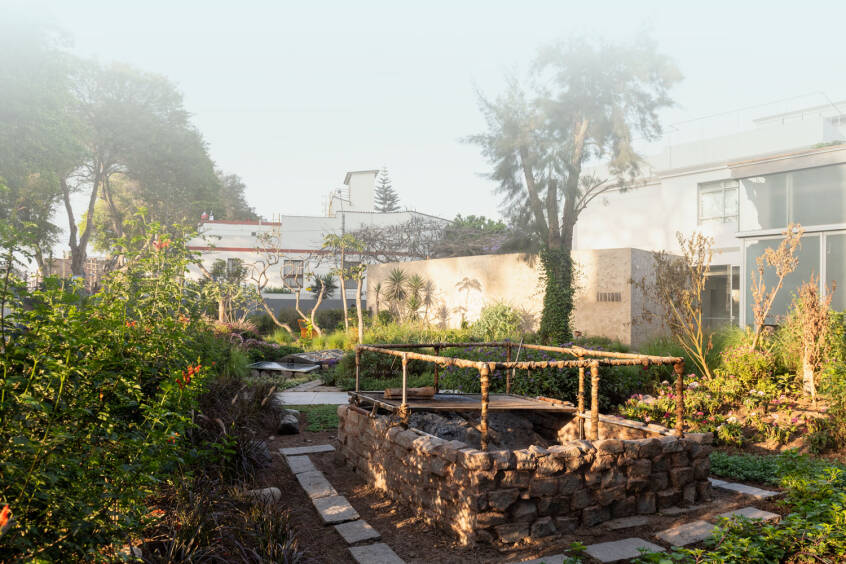
Change after the Coronavirus
“When we’re finally allowed to reopen Central, we’ll not change our concept. With the products we use in our dishes, we show people how to approach nature in a different way. We want to keep inspiring and keep celebrating the biodiversity and ancient food culture of Peru. Of course not all products we would like to work with will be available immediately. Our menu before the Coronavirus crisis consisted of sixteen courses that contained more than 300 different ingredients. Now, at first we’ll probably start with ten courses using the ingredients that are available to us. It will push us to explore and understand the possibilities of certain products, even more.”
“Another challenge that lies ahead of us is rebuilding our farm. Because of travel restrictions we weren’t able to harvest the produce we grew on our own farm outside of Lima. It has ruined a lot of our crops and the overall agricultural system. But I try to see positivity in this loss. It gives us a chance to be creative and redesign the place with local farmers.”
©Cesar del Rio
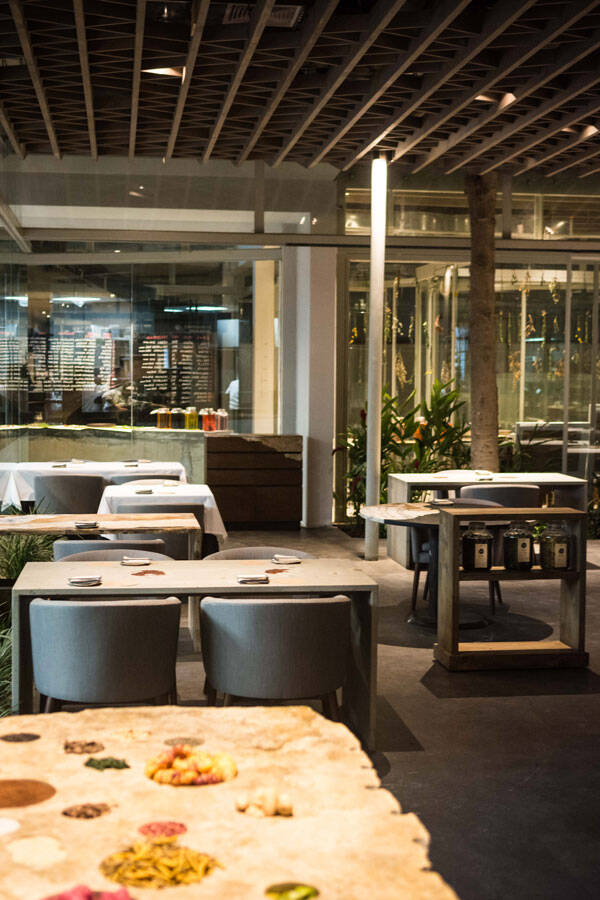
Self sufficiency
“I think it is interesting to see that the people who experience the least consequences from the lockdown, are the small producers that we normally work with in the Amazon. Most of them live and work in very remote places, so they’re already used to social distancing and living self sufficiently.”
“The people who are struggling the most are the producers from in and around Lima. I felt that we had to do something to give back to our community. We started to make take-away meals, and facilitate delivery. Because the products we normally use weren't available, I saw a chance to work with producers from Lima. Not only are we working with locals, but people from Lima are also eating our meals, which is really nice for a change. Usually our guests are people from outside of Peru.”
©Cesar del Rio
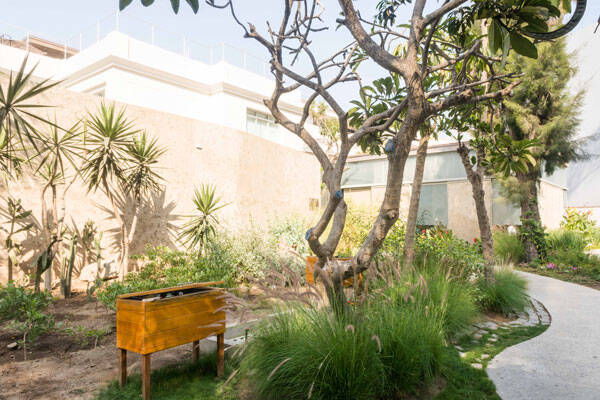
“
We should all try to find a way back to our roots”
Lima in lockdown
“Since the Coronavirus hit Peru, the government has installed a hard mandatory lockdown. Until the end of June people were only allowed to leave their house on certain days. All travel between provinces is forbidden and restaurants remain closed. Hopefully we will be allowed to open with a restricted amount of guests in July.”
“I am lucky that I live in the same building as our restaurant. The four walls I have to stay within, are a lot bigger than those of others. You could say these past couple of months have been like a mandatory holiday for me. While we were closed I used the restaurant’s space to read, reflect, clear my mind and spend a lot of time connecting with my wife and son.”
“Nevertheless my business got badly affected by the consequences of this crisis. I lost almost half of my staff. A lot of them were not from Peru and had to move back to their home countries. Also Peru’s economy has been hit hard because of the far reaching consequences of the pandemic.”
©Gustavo Vivanco
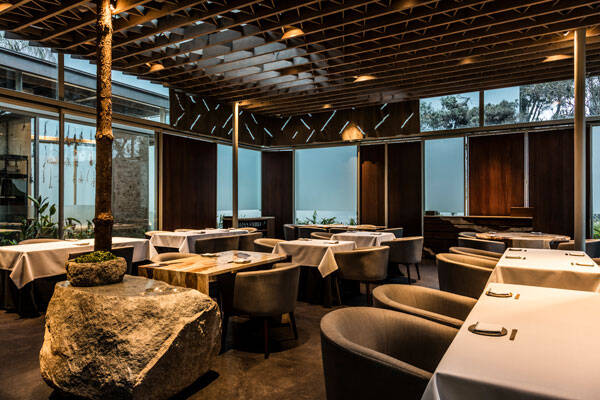
“
I felt that we had to do something to give back to our community”
Lisa Appels Xiao Er Kong
Virgilio Martínez Véliz is considered a key figure in the new generation of Peruvian chefs. His kitchen is known for applying modern cooking techniques to indigenous Peruvian ingredients. “Central is a place where we celebrate Peru and we want to continue doing so in the future.”
©César del Rio
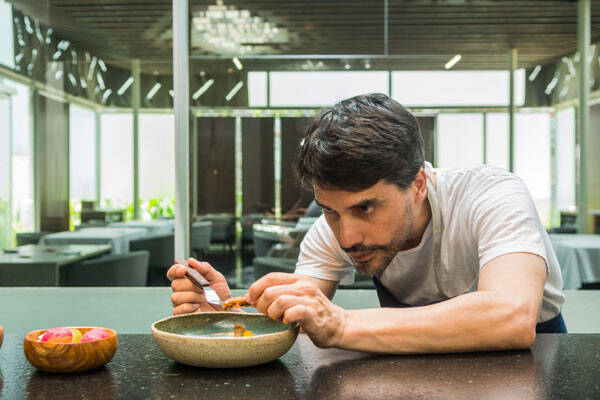

Chef and owner Virgilio Martínez Véliz of restaurant Central in Lima on the importance of taking care of your surroundings
3 min
©Gustavo Vivanco
